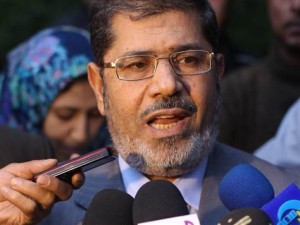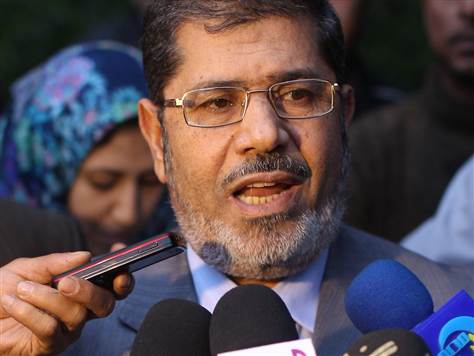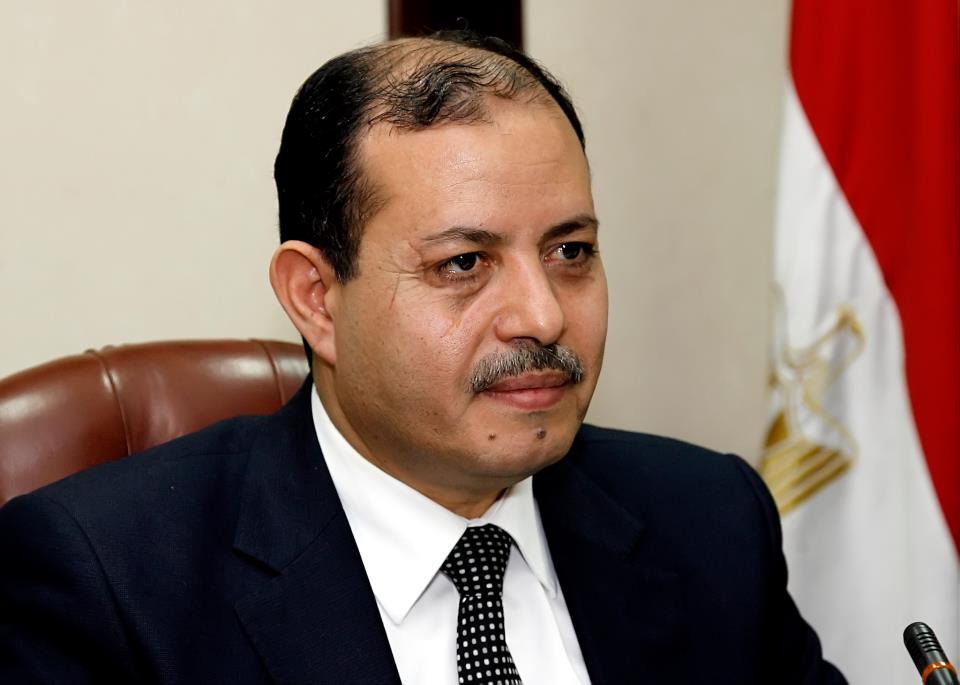
President Mohamed Morsy is set to arrive in Saudi Arabia today in his first trip abroad as head of state. The visit is widely viewed as a sign that the president wishes to highlight the strong ties between the two countries, especially after recent tensions that culminated in the withdrawal of the Saudi ambassador to Egypt, although the situation has since been remedied.
“Saudi-Egyptian relations are a model for Arab-Arab cooperation,” President Morsy said in a statement. “We in Egypt always appreciate the just stance of the Kingdom on all Arab issues and its support for Arab causes.”
Not everyone believes, however, that the visit comes at an appropriate time. Only yesterday, the Supreme Constitutional Court (SCC) dealt a blow to Morsy’s image by overturning his decision to reinstate the lower house of Parliament. The issue is still fresh in the minds of the people and thousands flocked to Tahrir Tuesday night to voice their displeasure with the SCC. It is a volatile situation that president Morsy leaves behind.
Indeed, the question remains as to why Morsy is able to leave at all. Under the Mubarak-era, Morsy, along with several other members of the Muslim Brotherhood, was slapped with a travel ban in an effort to crack down on Islamist activities. Morsy has not taken the necessary steps to remove his name from the watch list despite becoming president and resigning from his position in the Muslim Brotherhood.
“The name Mohammed Morsy is still on the travel ban lists in all Egyptian airports and harbours as a member of the Muslim Brotherhood,” Saudi news network Al-Arabiya reported.
While Morsy has not yet, and will most probably not take the requisite steps to sort out any obstacles to a journey to Saudi Arabia, it is expected that his travel plans will proceed regardless.
To this end the Saudi Press Agency announced that after performing the Umrah, a form of pilgrimage to Mecca, Morsy would meet with Saudi leaders including King Abdullah bin Abdulaziz Al Saud, Crown Prince Salman bin Abdulaziz Al Saud and others.
The gesture builds on Egypt’s key relationships in the gulf. United Arab Emirates Foreign Minister Sheikh Abdullah bin Zayed Al-Nahyan said: “We are keen on strengthening these historical and brotherly relations in the future politically and economically.”
Egypt stands to gain much from the friendship with Saudi Arabia. The gulf nation has offered $ 1 billion to the Egyptian Central Bank immediately following the elections results that saw Morsy declared President. An additional $500 million is pledged for “general economic assistance”, and $250 million has been earmarked for natural gas exports to Egypt.
A cloud hanging over his visit is the number of Egyptian prisoners in Saudi Arabia recently brought to a tipping point by the high-profile case of Ahmed Al-Gizawy, an Egyptian human rights lawyer who was arrested on arrival in Saudi Arabia. It is hoped by Al-Gizawy’s wife that President Morsy will take her case to the King and ask for a pardon for her husband. He has been charged with smuggling drugs but it is widely believed that the charges are false and the real intent of his arrest is to penalize the lawyer for criticizing the King in his legal practice.
In his last speech as a candidate, President Morsy promised to meet the families of the detained and hear their cases in hopes of releasing most, if not all of the prisoners.
The visit to Saudi Arabia will give Morsy an opportunity to prove his promises are not empty, for should he return victorious with Ahmed Al-Gizawy by his side, it will lend much credence to his other promises, such as the 100 day Nahda program which has been the subject of much scepticism.



